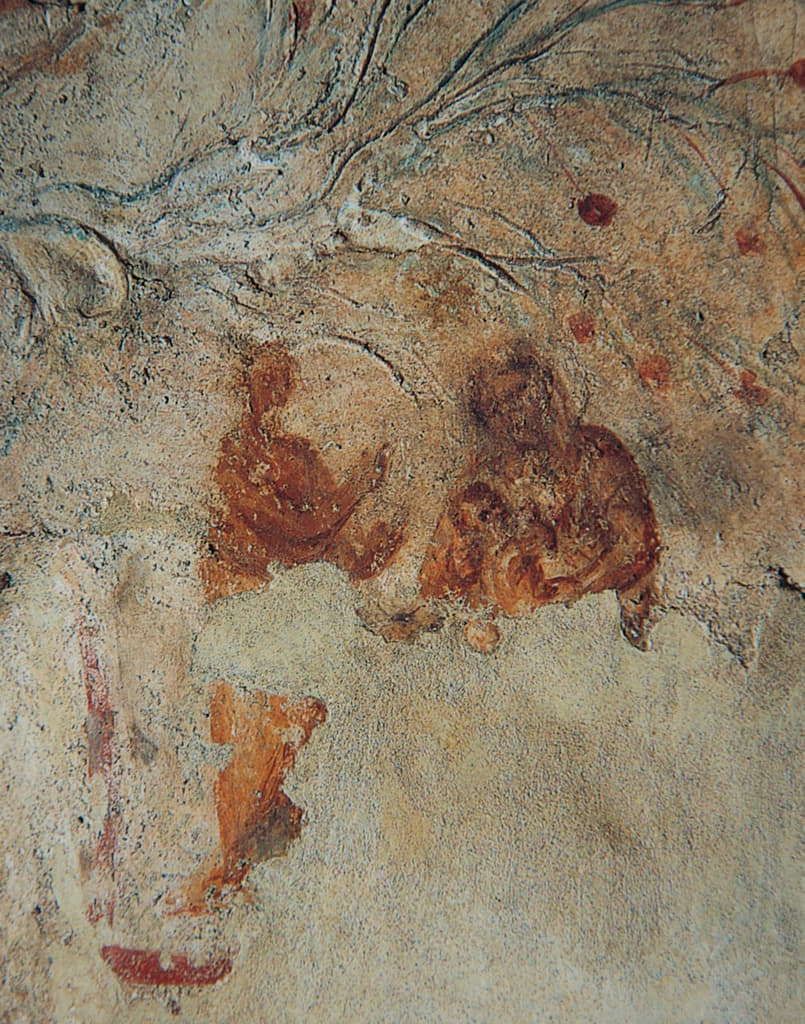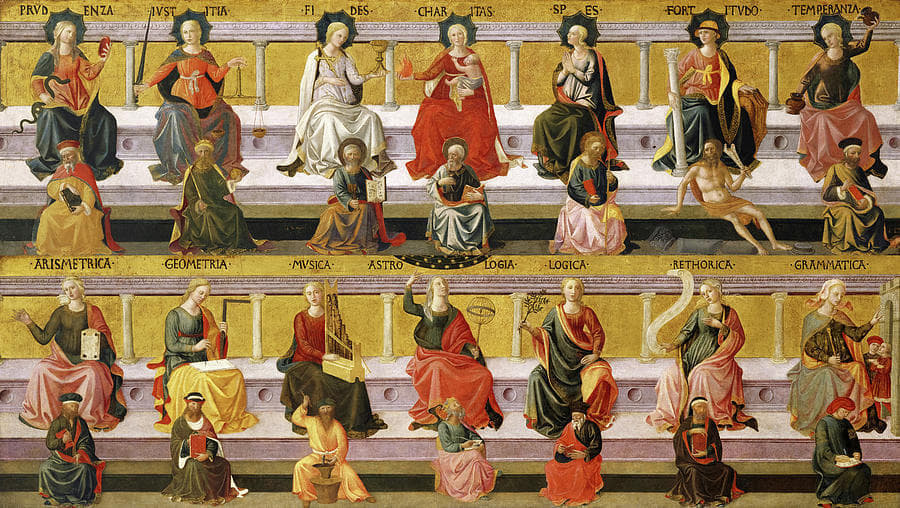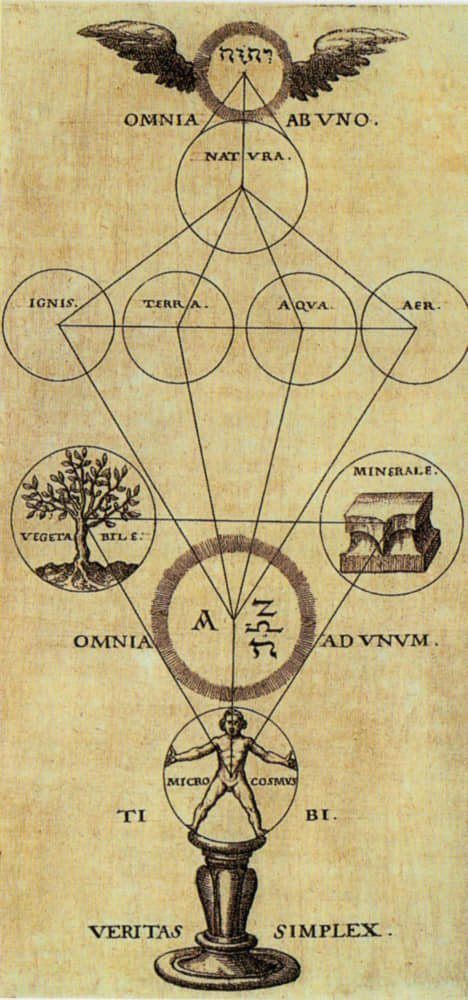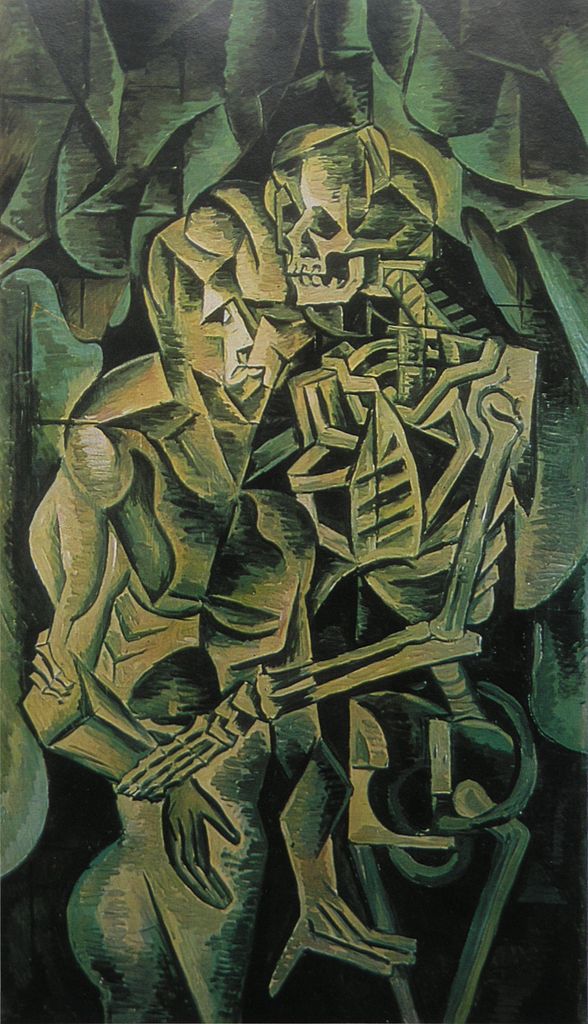At the Telos Conference (New York University, January 13, 2007), to address Pope Benedict’s XVI’s now-famous Regensburg address, Georgetown Jesuit Professor of Government, James V. Schall, maintained that he thought the Pope’s talk in Regensburg constituted a major historical event. I concur. I write this paper to do two things as best I can: (a) analyze the Pope’s address and identify precisely why I think it is of major historical import; and (b) positively critique the Pope’s interpretation of modern reason and the process that he describes leading up to its development. I do these two things in the hope that they might enhance what I consider to be the Pope’s largely superb analysis of the contemporary Western cultural predicament related to an impoverished notion of human reason and the ramifications that this notion has for Western relations with other cultures.
Summary of the Papal Address and Identification of its Historical Import
Pope Benedict XVI begins his Regensburg address with recollections and reflections on the start of his teaching at the University of Bonn, 1959. He describes how, at the time, despite distinctive academic specializations, including two theology faculties, that made communicating with each other difficult, the faculty members constituted part of the whole universitas scientiarum. The reality of each specialization “working in everything on the basis of a single rationality with its various aspects and sharing responsibility for the right use of reason… became a lived experience.” The university took pride in all its faculty members, including its two theology faculties, who sought “to correlate faith to reason as a whole,” and displayed a “profound sense of coherence within the universe of reason” that even radical skepticism could not shake, including unquestioning acceptance of the necessity and reasonableness of raising “the question of God through use of reason” and “in the context of the tradition of Christian faith.”
Benedict then explains how his recent reading of Münster Professor Theodore Khoury’s edition of part of a late fourteenth-century dialogue that took place near Ankara between “the Byzantine Emperor Manuel II Paleologus and an educated Persian on the subject of Christianity and Islam, and the truth of both,” had prompted his present recollections and reflections. The dialogue, presumably written by the Emperor, discusses many topics related to faith in Christian and Islamic scriptures. Benedict says that he found interesting one point from Sura 2,356, “rather marginal to the dialogue as a whole,” touching on the theme of holy war, that, “in the context of the issue of ‘faith and reason’” could serve as his starting point for his address: “There is no compulsion in religion.”
Benedict reports that, “on the central question of the relationship between religion and violence,” the Emperor addressed his Persian “interlocutor with a startling brusqueness” that Benedict found “unacceptable.” The Emperor claimed that the only new things that Muhammed had brought were “evil and inhuman, such as the command to spread by the sword the faith he preached.” The Emperor explained that spreading faith through violence is unreasonable because violence is incompatible with the natures of God and the human soul. Shedding blood does not please God, and acting unreasonably is contrary to God’s nature. The soul, not the body, gives birth to faith, through the ability to speak well and reason properly, not through threats and violence. We do not need to strong-arm people, or use violence or threat of death “to convince a reasonable soul.”
Benedict finds decisive this claim in the Emperor’s argument against violent of conversion: “not to act in accordance with reason is contrary to God’s nature.” So much so that Benedict maintains the only reason he quoted the dialogue between the Emperor and the Persian interlocutor “was purely for the sake of this statement” and that the theme of his subsequent reflections in his address emerge from this statement.
Then he cites the dialogue’s editor’s (Theordore Khoury’s) (a) observation that the Emperor was “a Byzantine shaped by Greek philosophy” (as such, he accepted this statement about God as self-evident); (b) subsequent claim that Muslim teaching holds God to be “absolutely transcendent”; and (c) quotation of Islamicist R. Arnaldez’s claim that Ibn Hazm went so far as to maintain, “God is not bound even by his own word, and that nothing would oblige him to reveal the truth to us. Were it God’s will, we would even have to practice idolatry.”
Benedict finds Khoury’s analysis to confront us with “an unavoidable dilemma” related to understanding God and the concrete practice of religion: Is the conviction that acting unreasonably contradicts God’s nature limited to a Greek philosophical truth, or is it a universal and eternal truth, true “always and intrinsically?”
In this conviction, Benedict states he believes “we can see the profound harmony between what is best in the Greek sense of the word and the biblical understanding of faith in God.” While Benedict does not precisely explain what he means by the phrase “best in the Greek sense of the word,” his meaning is evident from his initial identification of Greek philosophy as the origin of the ancient Greek conviction about God’s being essentially incapable of irrational behavior. A crucial point to note if we want to follow with precision the rest of what Benedict says in his address and adequately critique it later on: A profound harmony exists between the understanding of God in the best of Greek philosophy and “the biblical understanding of faith.”
Something radical happened in ancient Greek philosophy and early Christian revelation to which Benedict calls our attention: the best of the ancient Greek philosophical idea of God became part of Christian revelation. In my opinion, in this address, Benedict is making a revolutionary theological claim with dramatic metaphysical, social, and political implications for the future. This claim constitutes part of its historical importance.
Early in medieval theology, several Church Fathers favorable to philosophy, philosophical apologists, had made reference to the way in which Greek philosophers had prepared the way for the Western acceptance of Christian teaching through “a revelation of reason” analogous to the revelation of faith paved by the Apostles, Church teaching, and the Scriptures. During the Reformation and Enlightenment, Protestant intellectuals (Sir Isaac Newton is an example) who sought to undermine Catholic theology would periodically make reference to its corruption by Greek philosophy, and would take an especially hostile attitude toward St. Athanasius and the Council of Nicaea, which they considered to have played a chief role in this corruption and to be chief obstacles to us being able to return to the original Christian faith revealed in the New Testament, uncorrupted by Greek philosophical reason.
To my knowledge, however, none of the Church Fathers had ever claimed that this revelation of philosophical reason had become part of the deposit of Christian revelation, and no major Church theologian has ever argued, as Benedict proceeds to do in his talk, that this revelation of reason is an essential part of the Septuagint, the Greek Christian translation of the Old Testament, or that, instead of simply continuing the Jewish Scripture, the Christian Old Testament (the Septuagint) is “a less than satisfactory… translation of the Hebrew text”: “an independent textual witness and a distinct and important step in the history of revelation” generated by early Christianity’s encounter with Greek philosophy “that was decisive for the birth and spread of Christianity.”
Clearly, Benedict is doing something historically revolutionary in Western theology and cultural thought that is likely to have dramatic ramifications for religious and political dialogue and relations in the future. He is maintaining, as some Jewish scholars sometimes have done, that, strictly speaking, the Christian Old Testament and the Jewish Scripture are not identical; or the Pope is claiming that, if they are identical, later Jewish Scripture cannot be identical with earlier Jewish Scripture.
Benedict argues his case by claiming that St. John had begun his Gospel by modifying the first verse of the Book of Genesis to read: “In the beginning was the logos,” the exact word the Emperor uses when he says “God acts συν λόγω, with logos.” Benedict says, “Logos means both reason and word—a reason which is creative and capable of self-communication, precisely as reason.”’’ He claims that “the encounter between the Greek Biblical message and Greek thought did not happen by chance.”
Apparently, Benedict means the encounter was providentially guided. For he sees John speaking “the final word on the biblical concept of God” in which “all the often toilsome and tortuous threads of biblical faith find their culmination and synthesis”: “In the beginning was the Logos, and the Logos was God.” And he interprets St. Paul’s dream (Acts 16:6-10) in which, seeing the roads to Asia barred, Paul envisioned a Macedonian man pleading with him to come to Macedonia and help them, “as a ‘distillation’ of the intrinsic necessity of a rapprochement between Biblical faith and Greek inquiry.” In short, Benedict sees this rapprochement between Biblical faith and Greek philosophy as the necessary condition, and an underlying principle, of Christian revelation.
Benedict argues that this reconciliation had been going on at least since the Jewish prophet Moses and the Greek philosopher Socrates had, in their respective ways, attempted to affect a kind of intellectual “enlightenment” in the ancient world. Benedict thinks that Moses’ reference to God’s name in Exodus as “I am,” and Socrates’ philosophical behavior stand in close analogy as attempts “to vanquish and transcend myth.”
Benedict maintains that, despite attempts by some Hellenistic rulers to accommodate Biblical faith to pagan Greek idolatry and its practices, later wisdom literature of the Hellenistic period displays an evident mutual enrichment of Biblical faith and “the best of Greek thought at a deep level” (that is, Greek philosophy). Hence, strictly speaking, the Christian Old Testament was not the Hebrew-language Scriptures. It was a Greek translation of the Jewish Scriptures made by 72 Jewish scholars, influenced by Greek philosophical thought and language, in 72 days in Alexandria, Egypt between the fourth and third century B. C. (reportedly at the request of Egyptian King Ptolemy II): The Septuagint.
The Christian New Testament was written in Greek and depended on the Septuagint. And both reflect the ancient Greek philosophical notion of rationality as being part of reality. Hence, Benedict maintains: “A profound encounter of faith and reason is taking place here, an encounter between genuine enlightenment and religion. From the very heart of Christian faith and, at the same time, the heart of Greek thought now joined in faith, Manual II was able to say: Not to act ‘with logos’ is contrary to God’s nature.”
Benedict calls “this inner rapprochement between Biblical faith and Greek philosophical inquiry… an event of decisive importance from the standpoint of the history of religions, but also from that of world history”: A world-historical event, as Georg Hegel might say. Hence, reminiscent of Catholic historian Hilaire Belloc, Benedict finds no surprise that, “despite its origins and some significant developments in the East,” Christianity “finally took on its historically decisive character in Europe.” Put another way, Benedict claims that this convergence between Biblical faith and philosophical reason, “with its subsequent addition of the Roman heritage, created Europe and remains the foundation of what can rightly be called Europe.”
Baldly stated, Benedict’s thesis is that “the critically purified Greek heritage (that is, the ancient Greek notion of philosophical reason) forms an integral part of Christian faith” and that Christianity so formed created Europe. While not every element that the early Church incorporated into itself needs to be part of the faith, Benedict maintains the imprint of the Greek philosophical spirit exists as part of the New Testament. Hence, “the fundamental decisions about the relationship between faith and the use of human reason are part of faith itself; they are a developments consonant with the nature of faith itself.”
This is not to say that no attempts were made in the pre-modern West to sunder this “synthesis between the Greek spirit and the Christian spirit.” For example, Benedict makes specific reference to John Duns Scotus’s notion of divine freedom, in virtue of which God “could have done the opposite of everything he has actually done,” giving rise to positions that “clearly approach those of Ibn Hazm and might even lead to the image of a capricious God, who is not even bound to truth and goodness.”
Nonetheless, Benedict claims that the Church has always opposed the notion that God’s nature is capricious, that divine transcendence and otherness are so beyond human reason that our sense of truth and goodness no longer authentically mirror God. Instead, the Church’s faith has always insisted that a real analogy exists between the divine Logos and human Logos. God does not become more divine by becoming more capricious and irrational. “The truly divine God is the God who has revealed himself as Logos and, as logos, has acted and continues to act lovingly on our behalf.” Even God’s behavior must conform to the necessary conditions of created reality when God acts in relation to creation.
Hence, while, in a way, love transcends knowledge and with love we can perceive more than we can with reason alone, Christian religion, Christian worship, which includes love, is, to quote St. Paul, “λογικὴ λατρεία,” worship “of the God who is Logos” and “worship in harmony with the Eternal Word and our reason.”
Despite the fact that Benedict traces the roots of attempts at what he calls “dehellenization” of Christianity at least as far back as the high Middle Ages, the Pope maintains that: (a) a call for Christianity’s dehellenizaton has increasingly “dominated theological discussions since the beginning of the modern age”; (b) “viewed more closely,” we can observe three stages in this program of dehellenization; (c), while interconnected, these stages are “clearly distinct from one another in their motivations and objectives”; and (d) “Dehellenization first emerges in connection with the postulates of the Reformation in the sixteenth century.”
Benedict maintains that, “looking at the tradition of scholastic theology, the Reformers thought they were confronted by a faith system totally conditioned by philosophy, that is to say an articulation of faith based on an alien system of thought.””* Consequently, they tended to view the faith of scholastic theology as “one element in an overarching philosophical system,” an alien metaphysics, or belief system, not as “a living historical Word.”
Given this situation, Benedict thinks the Reformers turned to the principle of sola scriptura to “dehellenize” Christianity so as to liberate faith from philosophical metaphysics and be able to return to “faith in its pure primordial form, as originally found in the biblical Word.” He claims, further, that, when Immanuel Kant said “that he needed to set thinking aside in order to make room for faith, he carried this programme forward with a radicalism that the Reformers never could have foreseen.”’ In so doing, Kant (1) “anchored faith exclusively in practical reason” and (2) denied “it access to reality as a whole.”
Benedict locates the second stage of dehellenization in nineteenth- and twentieth-century liberal Catholic and Protestant theology. In Catholic theology, when he was a student and young teacher, Blaise Pascal’s distinction between the God of the philosophers and that of Abraham, Isaac, and Jacob, became its point of departure. He refers to Adolf von Harnack as “the outstanding representative” of this stage of dehellenization. Specifically, Benedict says Harnack’s “central idea” was “to return simply to the man Jesus and to his message, underneath the accretions of theology and indeed of hellenization.”
Harnack saw Jesus’ message as the culmination of humanity’s religious development. He thought that Jesus had “put an end to religion in favour of morality” and “presented Jesus as the father of a moral message.”*” Simultaneously, Harnack considered modern reason, science, as essentially historical. Hence, Benedict says, Harnack thought that “historical-critical exegesis of the New Testament” (that is, reading it historically as a humanitarian moral message, not as a message of worship) “restored theology to its place within the university” because “theology, for Harnack, is something essentially historical and therefore strictly scientific.” So, Harnack’s goal was twofold, to: (a) “bring Christianity back into conformity with modern reason” and (b) liberate “it from seemingly philosophical and theological elements, such as faith in Christ’s divinity and the triune God.”
In short, Benedict sees Harnack attempting to restore theology to the status of a science by making it conform to the modern and Kantian reduction of human reason to practical reason. For Harnack what theology can say critically about Jesus amounts to “an expression of practical reason.” By becoming reduced to an expression of practical reason through the Kantian critique, theology can then become strictly scientific, and “take its rightful place within the university.”
Benedict thinks that the modern concept of reason finds it roots in a synthesis of “Platonism (Cartesianism) and empiricism.” He claims that a Platonic understanding of nature underlies modern reason’s presupposition that a mathematical structure is matter’s essence and that this mathematical structure makes possible matter’s theoretical and practical intelligibility. And he finds empiricism in modern reason’s reduction of verification and falsification principles to experimentation. Part of modern reason is “nature’s capacity to be exploited for our purposes, and here only the possibility of verification or falsification through experimentation can yield decisive certainty.”
Benedict maintains that, depending on the circumstances, the weight of modern reason can shift from the pole of mathematics to that of experimentation. In this way, he explains how a modern “positivist” like Jean-Claude Monod can declare himself to be “a convinced Platonist/Cartesian.”
Benedict thinks this second stage of dehellenization has resulted in two principles that he calls “crucial to the issues we have raised”: (a) “only the kind of certainty resulting from the interplay of mathematical and empirical elements can be considered scientific”; and (b) “by its very nature this method excludes the question of God, making it appear an unscientific or pre-scientific question.”
The first principle requires that we must measure anything that would claim to be science against the criterion of possibility of experimental verification and falsification. In so doing, to become scientific, Benedict maintains that “the human sciences” (by which he means sciences like “history, psychology, sociology, and philosophy”) “attempt to conform themselves to this canon of scientificity.” The first and second principles confront us “with a reduction of the radius of science and reason,” which, Benedict claims, we need to question.”
One reason for this need to question is that, given the narrow understanding of modern science and reason, any attempt to accept theology’s claim to be “scientific” would reduce Christianity and “man himself” to fragments of their former selves. This is so because, under this narrow definition of science, the specific questions that religion and ethics raise about “our origin and destiny” become “relegated to the realm of the subjective.” Such questions have no place within the purview of a realist scientific reason. “Subjective ‘conscience’ becomes the sole arbiter of what is ethical.” And, in this way, ethics and religion (a) become a completely subjective matter and (b) lose their power to create a community.”
Benedict finds the situation that the modern reduction of reason has caused to be “dangerous for humanity.” When questions of religion and ethics are no longer the concern of reason, Benedict thinks “disturbing pathologies of religion and reason. . . necessarily erupt,” as evinced in our present time. And he claims that attempts to use rules of evolution, psychology, or sociology to construct an ethic “end up being simply inadequate.”
No surprise, then, that the third stage of dehellenization finds us embroiled in sophistic claims that “cultural pluralism” precludes that the synthesis made in the early Church between Hellenism and Christian faith ought not to be binding on other cultures. “The latter,” as the argument goes, “are said to have the right to return to the simple message of the New Testament prior to that inculturation, in order to inculturate it anew in their own particular milieux.” Impossible, says Benedict, because the spirit of Greek philosophical reason is an essential part of the Christian Old Testament, which lies at the foundation of the Christian New Testament, and precedes the advent of Christianity by several centuries. We cannot get back to an original New Testament that reflects no imprint of the Greek philosophical spirit of reason for the simple reason that no such New Testament exists. The Greek spirit of philosophical reason is part of the faith and an essential element of the nature of Europe.”
Having finished his analysis of the three stages of dehellenization of modern reason, Benedict describes what he did to be, “a critique of modern reason from within” that he “painted with broad strokes.” He says his criticism is no attempt to turn back the clock to a pre-Enlightenment time and reject insights of the modern age. He unreservedly acknowledges modernity’s positive aspects, is grateful for the marvelous possibilities “it has opened up for mankind and the progress in humanity that has been granted to us.” With the scientific ethos, Benedict says, Christianity shares “the will to be obedient to the truth.” His intention is no “retrenchment or negative criticism;” it is to broaden “our concept of reason and its application” to overcome dangers that the narrow modern understanding of reason has also opened as part of its possibilities.”
Benedict offers his address as a positive critique to help modernity expand the horizons of reason to avoid real dangers that arise from the “self-imposed limitation of reason to the empirically falsifiable. . . . In this sense theology rightly belongs in the university and within the wide-ranging dialogue of sciences, not merely as a historical discipline and one of the human sciences, but precisely as theology, as inquiry into the rationality of faith.”
Devoid such a broadening of the notion of reason, Benedict addresses a second point of major historical significance: the Western world is incapable of entering into “that genuine dialogue of cultures and religions so urgently needed today.” He claims that the West widely holds “that positivistic reason and the forms of philosophy based on it are universally valid.” This puts the West in diametric opposition to “the world’s profoundly religious cultures” who “see the exclusion of the divine from the universality of reason as an attack on their most profound convictions. A reason which is deaf to the divine and which relegates religion into the realm of subcultures is incapable of entering into the dialogue of cultures.”
Put slightly differently, the Pope is saying that we cannot enter into genuine dialogue with people unless we enter into rational dialogue with them. Such dialogue must have at least two characteristics: (1) it must be in touch with reality and (2) it must assume the rationality of the interlocutors. Unhappily, the modern Western notion of reason arbitrarily limits rational discussion to talk about mathematical being and sense experimentation. It views all other talk as essentially non-rational. Hence, strictly speaking, people who hold this narrow notion of reason cannot enter into rational debate with other people about moral and religious issues because their narrow understanding of reason cuts them off from rational debate about such issues.
More or less, what the Pope is saying is that, in relation to religious and moral issues, the modern West’s narrow understanding of human reason places it in the same situation as Ibn Hazm. It cannot rationally dialogue with people about these issues because it has relegated religious and the moral being and talk to the sphere of the essentially nonrational, capricious, arbitrary.
The Pope well recognizes that this places the West in an extremely precarious position relative to religious cultures, especially to elements of Islamic culture that think like Ibn Hazm. How are Enlightened Western intellectuals supposed to dialogue with Muslims, who think that God is an arbitrary Will, not subject to behaving according to mind-independent standards of rationality, like non-contradiction, when the Western intellectuals have a view of moral and religious reason as essentially irrational as their Muslim counterparts? The West’s view of moral and religious reason is just as narrowly fundamentalistic as that of Muslim extremists. Hence, strictly speaking, modern Western intellectuals cannot enter the debate because, by their own admission, they are totally incapable of conducting rational dialogue in the areas of religion and morality. Clearly, if such dialogue is to take place, it will have to occur between those in the West and East who do not share such narrow understandings of rationality.
While modern scientific reason has to accept and base its methodology on matter’s rational structure “and the correspondence between our spirit and the prevailing rational structures of nature as given,” Benedict claims (a) the real question remains why it has to do so? Moreover, (b) the natural sciences have to remand this question to philosophy and theology to answer because the natural sciences are incapable of addressing the question. Benedict maintains that philosophy and theology are sources of knowledge derived from human experience, much of which come from religious traditions and Christian faith.”
He makes special reference to Socrates’ observation in the Phaedo that extended philosophical argumentation involving “talk about being” might incline a person to mock all such talk, and, in so doing, “be deprived of the truth of existence” and “suffer a great loss.” In a similar fashion, Benedict claims that “the West has long been endangered by this aversion to the questions which underlie its rationality, and can only suffer harm thereby.” He thinks that to ignore theological and philosophical sources of knowledge is “an unacceptable restriction or our listening and responding” to reason and is something we do at our peril. Hence, he concludes by asserting that “a theology grounded in biblical faith enters into the debates of our time” with a program that involves “the courage to embrace the whole breadth of reason,” not to deny its greatness. “It is to this great Logos, to this breadth of reason,” he says, “that we invite our partners in the dialogue of cultures. To rediscover it constantly is the great task of the university.”
Critique of Pope Benedict’s Account of the Rise of the Modern Notions of Reason and Science
Despite the thoroughness of Pope Benedict’s analysis of the current Western cultural predicament, as he admits, he painted his critique of modern reason with broad strokes. In so doing, in some respects, I think his account of the rise of the modern, or, more precisely, the Enlightenment and post-Enlightenment, notions of reason and science suffers from an imprecision that, at times, makes some of his claims appear incoherent.
The main problem I find with the Pope’s interpretation of the nature of modern reason and the process that he describes leading up to its development is that, while, on the one hand, he credits ancient philosophical reason with shaping the notion of reason that early Christianity incorporated, he subsequently labels the attempt to excise philosophical reason from Christianity as a process of “dehellenization.” Precisely speaking, I think this label is incorrect. Likewise incorrect, precisely speaking, is locating the start of this process of deconstruction with the Reformation. As Benedict well knows, the early stages of the process start in the movement to neutralize the influence of Aristotle and, especially, his Commentator, Averroes, after Bishop of Paris Stephen Tempier’s famous condemnation of 1277. And they begin to flower long before the Reformation, during the Italian humanism of the Renaissance, chiefly with the work of Francesco Petrarcha (Petrarch) and his followers.
I make these claims because, as Benedict readily recognizes, philosophical deconstruction, not dehellenization, is the essential element that spurred the development of modern, Reformation, Enlightenment, and postmodern reason. The chief fabricators of modern reason were not essentially opposed to Greek thought. As the Pope admits in several places, those who sought to purify Christianity of Greek heritage were chiefly concerned about purging Christian faith of philosophical reason. The Reformers rebelled chiefly against Greek theoretical and philosophical reason, not against Greek rhetoric, or practical reason (which they tended to reduce to the human imagination). Such being the case, why refer to the process as “dehellenization” when essentially it is philosophical deconstruction?
To some extent, the Italian Renaissance did attempt to challenge the Greek claim to be the origin of philosophy. But it initially did so chiefly as part of an ongoing battle of the arts that had started in antiquity and had continued throughout the Middle Ages, not as an attempt to dehellenize Christian faith. Petrarch and his followers used the popular theological depiction of physical nature as a “book” to elevate the status of poetry and rhetoric over philosophy with the hope of reviving the studies of both, and, through them, restore the greatness of Rome. They did this by popularizing the notion that philosophy was an esoteric metaphysical and moral teaching about creation that God had initially given to Moses, which, to protect from vulgar cultural elements, had been transmitted to the security of ancient poets to hide from the culturally backward. These poets included Greeks and Romans.”
In this Renaissance view, the skill of the poet, not the abstraction of the philosopher, spiritualizes hidden philosophical teaching and, thereby, generates universal ideas and makes science possible. Only the poet has the skill to read the book of nature and generate true universal ideas. Hence, during the Renaissance, poetry, which was a division of rhetoric, became the measure of human reason, the canon of scientificity. And from that time to the present, strictly speaking, language arts, linguistic skills (of the poet, mathematician, historian, logician, language analyst), and so on, not mathematics or empiricism, have continued to be the measure of rationality.”
For a period of time the influence of Galileo Galilei and René Descartes overthrew the primacy of the poetic claim to possess the magic ability to read the book of nature and of the human spirit. The mathematician, thereby, became the new shaman of modern reason. But this was only because of the mathematician’s reading ability, not because of mathematical being can transcend language. While the book of nature might be written in the language of mathematics, if nature is book, then mathematics is essentially a language.
This monopoly of the mathematician did not last long because, chiefly through the work of Jean-Jacques Rousseau, Cartesian thinkers started to realize that Descartes’s project to ground science as a system of clear and distinct ideas was a failure. Hence, following Rousseau, and under the influence of prestigious thinkers like Sir Isaac Newton Enlightenment intellectuals like Kant and Hegel started to view the attempt to establish science as a system of clear and distinct ideas to be part of the human project, an essential part of the human spirit’s call of conscience.”
As part of this call, from the period of the Enlightenment onward, the notion of the reality of mystery becomes anathema and so, too, does the claim that any statement can be evidently true. What in the past had been called mystery, Enlightenment and post-Enlightenment thinkers must forever onward view as pre-scientific, or religious, backward, consciousness. To guarantee their monopoly over rationality, Enlightenment fundamentalists will arbitrarily dictate that we can admit no statement as part of rational speech unless it can pass the intelligibility test of conforming to the language of “the critique,” that is, unless it is the sort of talk that Enlightenment intellectuals consider rational in terms of their political projects. Hence, strictly speaking, not dehellenization, but philosophical deconstruction, total demystification of reality and elimination all evident truths (apart from the supposedly evident truth of the need to submit all thinking to “the critique”), total subordination of reason to socialist political ideology, becomes the essential mark of the modern mind.
Enlightenment thinkers promoted this political ideology posing as Enlightened reason by adopting Rousseau’s epistemological claims that all knowledge, including science, emerges from a moral urge, the call of conscience (pure reason in its infant stage) to come into conflict with its own emotions on different levels and eventually grow into the human system of science. Rousseau, in short, reduced all knowledge to moral self-projection, and all moral self-projection to the historical consciousness of the human species as it attempts to grow itself into the system of science. Following Rousseau, Kant made duty the principle of practical reason. And, in various ways, subsequent German thinkers like Georg Hegel and Friedrich Nietzsche reduced reason to the emergence of free poetic spirit.
By overlooking his own central thesis, and stressing dehellenization, not philosophical deconstruction, as the call that gave rise to the narrow notion of modern reason, Pope Benedict fails to identify modern reason and science chiefly as what they are: forms of socialist political ideology, rhetoric, sophistry, essentially hostile to all claims that mystery is part of reality, equally hostile to all legitimate philosophy, essentially anti-Catholic and anti-Semitic, and totally incapable of accepting the notion of evident truths, truths needing no proof to make them rational.
Benedict evinces the weakness of his approach in his treatment of Harnack’s theology, where, among other things, he fails to note the evident influence of Rousseau and Renaissance humanism, and of the desire to eliminate mystery from theology, on Harnack’s reduction of religion to morality.
Benedict rightly maintains that Harnack’s goal was to use historical-critical exegesis of the New Testament to bring Christianity into conformity with modern reason by “liberating it… from seemingly philosophical and theological elements faith in Christ’s divinity and the triune God.” Such behavior makes sense, if as Benedict says, modern reason is essentially positivistic and/or mathematical. Yet, if that is the case, why does Benedict explain Harncack’s goal to reside in Harnack’s view that theology is “essentially historical and therefore strictly scientific.” Clearly, Harnack’s attempt to justify theology’s scientific character by appealing to its essentially historical nature makes no sense if Harnack thought modern reason to be essentially positivistic and/or mathematical. It makes perfect sense, however, under the presumption that Harnack saw reality to be totally devoid of mystery and viewed what people call “mystery” as simply primitive, pre-scientific, consciousness.
Moreover, if history makes theology scientific, how can Benedict reasonably maintain, “This modern concept of reason is based… on a synthesis between Platonism (Cartesianism) and empiricism. Whose modern reason, whose rationality is Benedict describing when he claims that, as its Platonic element, modern reason presupposes the mathematical structure of matter, its intrinsic rationality, which makes it possible to understand how matter works and use it efficiently and when he adds that its empiricism comes in with experimentation that enables us to exploit nature for our purposes? Apparently, this is not Harnack’s conception of modern reason. Nor is it Nietzsche’s or a host of other modern, Enlightenment, or post-Enlightenment thinkers.
All these thinkers tend to share in common the reduction of reason to belief systems and separation of reason from reality. Strictly speaking, the Platonism that Benedict sees in modern thought is not Platonism. Plato’s view of reality is richer than the Pope here describes it. Plato was no subjective idealist. But modern Cartesianism and empiricism are both forms of subjective idealism. Both separate reason from reality and reduce knowing to forms of solipsism, sophistry, self-revelation. While Cartesian thinkers might claim that matter is essentially mathematical, matter for them, as it is for all modernity, is simply an idea or a subjective feeling, part of the constitution of human consciousness, not a mind-independent reality.
Strictly speaking, modern reason is reason totally eviscerated. Its canon of scientificity is sophistry, the prevailing opinion of a magisterium of intellectual elites who tend to control the political machinery in Ivy League universities in the West. Its canon of scientificity is not mathematics or experimentation. Modernity tends to reduce theoretical reason to practical reason and practical reason to projections of the human imagination, which it calls by different names. Whatever the name, modern reason is simply a name for a collection of feelings or ideas that supposedly somehow incline to unite together to form a belief system seeking to grow into a logically coherent system of science. Strictly speaking, modern reason (pure reason) is a meaningless notion, a myth, an ens imaginationis, a projection of the human imagination, poetic imagination totally unmoored from reality, which modernity calls upon as a socialist ideological tool to justify its fundamentalist self-understanding as the spirit of humanity that, through the principle of tolerant speech, uses different forms of language (like history, mathematics, poetry) to emerge historically and give intelligibility to an otherwise meaningless reality.
By stressing dehellenization over philosophical deconstruction, I think that Pope Benedict is largely forced to ignore the essentially fundamentalistic, spiritualistic, mythological, anti-Catholic, and anti-Semitic, poetic nature of the whole of modern scientific reason. By so doing, he robs himself of an enabling means for more completely addressing the current cultural problems facing the West and Christianity and of restoring sanity to Western universities, including Catholic ones.
For this work involves more than simply recovering the Greek respect for essential rationality in a logical sense of respecting the principle of non-contradiction, and avoiding behavioral contradictions. The fact that the Pope’s colleagues at the University of Bonn shared a “profound sense of coherence within the universe of reason” or a will to accept the truth, is no indication that many, perhaps most, of them, were not working under an impoverished notion of philosophical reason. If different academic disciplines are simply so many “belief systems” that become rational by thinking according to the logic of the Enlightenment critique, then the Pope’s universe of reason at the University of Bonn appears to be little more than one of acting with Enlightenment logical consistency. Moreover, as the Pope readily recognizes, saying that God must act in a way that conforms to his nature must mean more than to say that God acts in a way that displays a profound sense of logical consistency. Even Adolf Hitler and Joseph Stalin tended to do that.
As the Pope well knows and readily admits, it must mean that, once created with its own intrinsic order of being and good, in some respect, mind-independent reality must be a measure of rational divine behavior just as it is the measure of rational human behavior. And attempting to overcome the modern cultural predicament involves more than the need to maintain philosophical reason within the West. It involves recovering philosophical reason in the first place. Doing this, however, entails recognizing that (a) philosophical reason has been lost in the West for centuries, and (b) philosophical reason and logic are not identical; and in recovering the Greek philosophical conviction that (a) mystery constitutes part of the physical universe’s essential rationality, and (b) philosophical reason finds its essential starting point, its first principle, in sense wonder, not in principles of doubt, dreams of pure reason, political projects of spiritual emergence, or logically coherent belief systems.
By focusing attention in his address on call to dehellenize Western culture, not on the call to dephilosophize it, as the main source of the West’s contemporary cultural problems, I think that, in an otherwise excellent analysis, the Pope unnecessarily obscures the precise cause of the contemporary Western predicament, which he, nonetheless, appears to see. By so doing, he is unable to maximize the precise solution to this predicament: the recovery of philosophy within the culture.
Peter Redpath was Professor of Philosophy at St. John’s University. He is the author/editor of 17 philosophical books and dozens of articles and book reviews. He has given over 200 invited guest lectures nationally and internationally, and headed many prestigious organizations. He is the only non-Polish scholar to hold the Laudatio Achievement Award for attainment of intellectual and organizational wisdom, from the Department of Philosophy, Culture, and Art at the John Paul II Catholic University of Lublin, in Poland. More information is found at his website. A version of this appeared in Telos.
Featured: The Virgin and the Christ Child, Catacomb of Priscilla, Rome, fresco painted ca. 230-240 AD. (This is the first known image of the Virgin Mary, with a star and roses).







